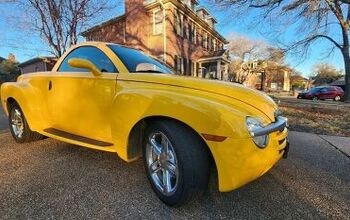The New York Times Pays A Woman With A $2.85M Home To Lecture You About Being A Commuter Prole

Do you like commuting? I certainly don’t. It’s safe to say that nobody likes commuting. Even when you’re driving a car or riding a motorcycle that you absolutely adore, the fact remains that doing almost anything else with the car or bike in question would be more enjoyable than slogging along with a group of similarly condemned individuals down the Long Island Expressway or I-5 or I-75 or the Chicago Loop. Nobody commutes because they want to. They commute because they have identified a need or combination of needs in their lives that require it. Perhaps they’re a dual-income couple with geographically separate jobs. Perhaps they cannot afford to live near where they work. Perhaps they are temporary employees, the foot soldiers in our country’s mostly imaginary recovery, going wherever the work is found while trying desperately to cover their expenses at home.
Just in case, however, that you felt your commute to be a glorious triumph, a veritable quotidian adventure, the Times has commanded that a member of the fabled one percent disabuse you of this ridiculous notion.
The boys, like their father, are lean, strong and healthy. Their parents chose to live in New York, where their legs and public transit enable them to go from place to place efficiently, at low cost and with little stress (usually). They own a car but use it almost exclusively for vacations.
Whereas you use your car almost exclusively for abortions, you hill trash, you.
“Green” commuting is a priority in my family. I use a bicycle for most shopping and errands in the neighborhood, and I just bought my grandsons new bicycles for their trips to and from soccer games, accompanied by their cycling father.
How lovely, particularly when you consider that she probably lives about ten miles away from children who would be taking their lives in their hands were they to commit the reckless act of riding shiny new bicycles outside in the neighborhood.
According to the Census Bureau, more than three-fourths of all commuters drove to work in single-occupancy vehicles in 2009.
That’s because most commuters don’t live in New York, you over-insulated hothouse flower.
Millions of Americans… pay dearly for their dependence on automobiles, losing hours a day that would be better spent exercising, socializing with family and friends, preparing home-cooked meals or simply getting enough sleep. The resulting costs to both physical and mental health are hardly trivial.
Thank G-d we’ve managed to genuflect to foodie-ism during this stroll down Park Slope. It’s amazing that millions of Americans are so stupid that they demand to drive everywhere. Why can’t we all be as enlightened as Jane Brody and her family? Let’s return to the source article for more of that sweet, sweet intellectual nectar:
[Some author] recounts some important countervailing trends: more young families are electing to live in cities; fewer 17-year-olds are getting driver’s licenses; people are driving fewer miles; and bike sharing is on the rise.
BIKE SHARING? What the actual fuck. The rest of us can’t even have our own bicycle now? Is this how our New Eloi will distinguish themselves: by sole possession of a bicycle? Ms. Brody’s grandchildren will each have a bike, but you and I should count ourselves lucky to be allowed to borrow or rent one.
More homes and communities are being planned or reconfigured to shorten commutes, reduce car dependence and facilitate positive interactions with other people… Dr. Richard Jackson, the chair of environmental health sciences at the University of California, Los Angeles, says demographic shifts are fueling an interest in livable cities. Members of Generation Y tend to prefer mixed-use, walkable neighborhoods and short commutes, he said, and childless couples and baby boomers who no longer drive often favor urban settings.
Young people enjoy living in the city? This is news to me — said nobody ever.
Old people don’t want to mow the lawn? Amazing.
Childless couples aren’t interested in living in communities where there’s plenty of green space and good schools? OMFG.
While I don’t recommend reading the source article, for the same reason I wouldn’t recommend mailing a dollar bill to the North Korean Government, I’ve chosen to discuss it on TTAC today because it’s important to understand the mentality of people who push for outrageously oppressive anti-automobile regulation and taxation. Every idiotic, short-sighted, reality-averse program that comes from the state and federal governments, from “clunker crushing” to per-mile vehicle tracking, starts off as a vague idea in the head of somebody like Jane Brody. Somebody who hasn’t the faintest fucking idea how the majority of Americans live, somebody who lives in a $2.85 million private home, someone who is as far removed from the everyday cares and concerns of working Americans of any class as a visitor from another star system would be.
To Ms. Brody’s addled mind, all everybody needs to do in order to be happy is either:
1) Move to Brooklyn;
Idea #1 is prima facie beneath contempt. The fact that her spoiled son could move to Brooklyn does not mean that three hundred million Americans can do so. There’s a reason most of our ancestors kept moving past Ellis Island. Idea #2 sounds slightly more reasonable when one is doddering around one’s castle, but it also falls apart under even the most cursory examination. Most municipalities in the United States right now can barely afford to keep the lights on. The large-scale re-urbanization of which our not-so-humble source author dreams would be a task that would require the entire sustained effort of the entire working population of this country, for decades.
Like it or not, America will continue to exist as a country where personal transportation is highly valued. No matter how much Ms. Brody might cheerfully envision a world where proles are packed onto a train while she strolls to her afternoon tea, such a world is decades, if not centuries, away from becoming a reality. We like our cars. We like being able to go somewhere without asking the government or the bus company or the train authority for permission. We like being able to travel with the companions of our choosing, even if that companion is an empty seat.
Times are hard right now for many people, but they are emphatically choosing not to give up their cars — not if they have any choice at all. The American fleet is older than it’s ever been, but it’s still rolling. From her castle windows high above the world’s capital city, Ms. Brody and the New York Times have seen how hungry a lot of Americans are — for gasoline, for energy, for work, for a future. Their solution is simple: eat cake. Move to a $2.85M house and let your strong, healthy children walk to soccer games. Live the lifestyle they live. And if you can’t, feel free to drop out of the American Dream posthaste.
Luckily for these modern-day aristocrats, this isn’t pre-Revolutionary France, or even pre-Revolutionary America. But that’s subject to change, you know, and when that day comes and a nation full of hopeless, unemployed, desperate people makes a final journey into the cities to take what’s left, Ms. Brody shouldn’t be surprised if she’s one of the first ones up against the wall.

More by Jack Baruth
Latest Car Reviews
Read moreLatest Product Reviews
Read moreRecent Comments
- El scotto @jalop His maintenance costs are about right. Sorry about your alternative reality.
- Kwik_Shift_Pro4X Just because you don't see many of them on the road doesn't mean they go up in value. I'm sure finding parts for it will be an adventure. 🙄
- FlyerTuck My middle-aged parents (father) at the time ordered a new 1996 DeVille Concours Edition. The engine was butter smooth and could move that land yacht well. It rode well too on the highway and floated, but it couldn't handle out of its own way. My mother loved it, but my performance oriented father grew to hate it over time. He wanted something he could still whip around back roads like the sports cars he used to own before marriage. He traded it on a BMW 7-series after not even two years, and while my mother said it wasn't as comfortable and took bumps more harshly, could live with it. Something about rear wheel drive and independent suspension magic. GM just never learned.
- FlyerTuck What is amazing when you think about it is that Honda started out just a motorcycle maker during the post-WWII Reconstruction period. They've come a long way very quickly, and took out American competition that had been around twice as long.
- El scotto Stupid is as stupid does. I would imagine most car dealers only computerized when some salesperson showed them it could make/save them money. Pay for anti-virus protection and such? A waste of dealership money. BTW does anyone know if Bark Baruth has written anything on this?


































Comments
Join the conversation
The ironic thing is that the suburban sprawl lambasted by the "we know better than you" crowd is the result of "we know better than you" urban planners way back when. If they had just let development occur organically, it would have continued to be more mixed use, denser, and less stratified - all the things they pine for now. The problem with elites is not that they actually are elite, it's that they think they are and that the rest of us need them. The NYT article here is an annoying pinata, and Jack took some entertaining swings at it. I enjoyed the candy. But the effort to separate us from our cars has been going on for decades now. If/when it eventually happens, it will be because we accept mass-transit in the guise of self-driving cars. Not because we're convinced by some silly, out of touch lady who makes the mistake of being so annoying in a supposedly persuasive piece that she probably alienated people that agree with her basic premise.
Loved it. Keep this kind of thing coming. It's sharp, pointed, vitriolic, and funny. And it offers an insightful counterpoint.